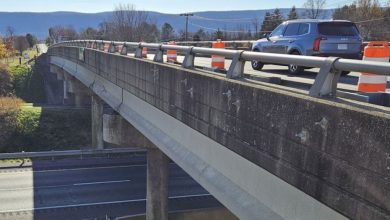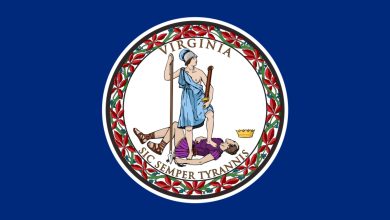Virginia Department of Conservation and Recreation advances plans for Falkland conservation and recreation area
Halifax, Virginia – Plans are advancing in Halifax County for one of Virginia’s most ambitious conservation and recreation projects, following the largest private land donation ever made to the Commonwealth. In early 2022, the Virginia Department of Conservation and Recreation (DCR) acquired 7,369 acres of land formerly known as Falkland Farms. This property, bordering Staunton River State Park and adjacent to Difficult Creek Natural Area Preserve, now links together a total of 10,000 acres of public lands managed by DCR.
Virginia State Parks and the Virginia Natural Heritage Program are working in partnership to manage the site. “The Falkand property presents a rare opportunity to conserve natural resources at a landscape scale in the Commonwealth,” said DCR Director Matthew Wells. “We’re incredibly excited about expanding public access to outdoor recreation while protecting southern piedmont forests and habitat for highly significant rare species.”
Elected leaders praised the project as both a conservation milestone and a community benefit. “The Falkland project is a tremendous win for Halifax County and Southside Virginia,” said Senator Tammy Mulchi. Delegate Tommy Wright added, “This project preserves thousands of acres of beautiful Virginia landscape, safeguards important wildlife habitats, and opens the door for new opportunities in outdoor recreation.”
Southside Savanna Natural Area Preserve
Nearly half of the property—3,899 acres—was designated on December 21, 2023, as part of Virginia’s Natural Area Preserve system. The state’s 67th preserve was officially named Southside Savanna in April 2024. Managed by the Virginia Natural Heritage Program, the preserve’s mission is to conserve native biodiversity across the Commonwealth.
This land contains unique hardpan soils underlain by Virgilina greenstone and Aaron slate, supporting habitat for rare and threatened plant species. Scientists have documented several rare, threatened, and endangered species since the state’s acquisition, with research ongoing. “By bringing this property into management alongside Difficult Creek Natural Area Preserve, we now have an opportunity to steward one of the largest remaining piedmont savannas in the eastern United States as a single, connected landscape,” said Lesley Starke, chief of natural areas stewardship.
To support the preserve’s stewardship, DCR has hired a new Natural Heritage steward as regional supervisor for the newly established Southern Piedmont Region and is recruiting an additional steward to focus on operations and law enforcement.
Falkland State Conservation Area
The remaining 3,470 acres are being prepared as the Falkland State Conservation Area, where outdoor recreation will take center stage. While not yet open to the public, Virginia State Parks is finalizing plans for a system of multi-use trails that will accommodate hiking, biking, and horseback riding. The routes are being designed to strike a balance between public enjoyment and the protection of sensitive natural and cultural resources.
“The Falkland State Conservation Area is a significant addition to our system, one that will preserve vital landscapes while creating new opportunities for outdoor recreation,” said Virginia State Parks Director Dr. Melissa Baker. “Our priority now is thoughtful planning to ensure that when the area opens, it offers the highest quality visitor experience while protecting the resources that make it so special.”
Alongside the future trails, managed hunts will continue at Falkland as a means of controlling the deer population. The site will be staffed jointly by Virginia State Parks and the Natural Heritage Program, with plans for forest management, invasive species control, and prescribed fire to maintain ecological health.
A Vision for Generations
Backed by a 2021 grant from the Virginia Land Conservation Foundation, the Falkland project is being hailed as a model of large-scale conservation that integrates biodiversity preservation with public recreation. Leaders believe it will protect rare species, restore historic landscapes, and give Virginians new opportunities to connect with the outdoors.
As the planning phase continues, Halifax County is poised to benefit from this unprecedented investment in conservation, ensuring that both the natural beauty and recreational potential of Falkland will endure for generations to come.




